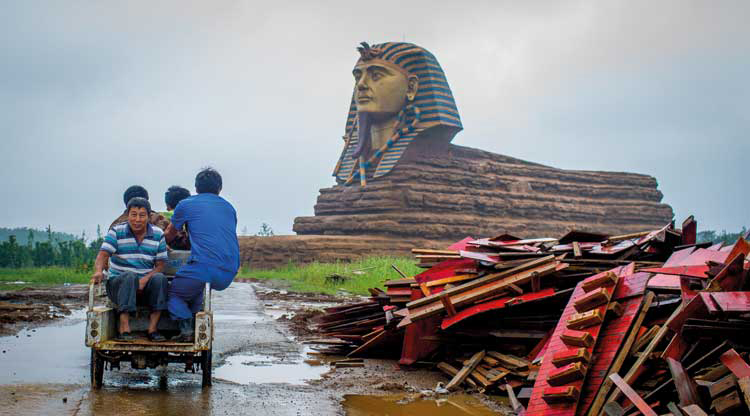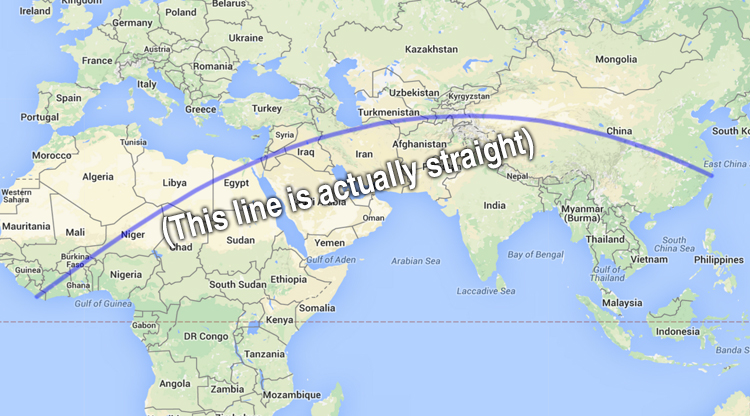While the Standing Committee of the National People's Congress was magnanimously decreeing on Sunday that the people of Hong Kong can't be trusted to elect a sufficiently pro-CCP leader and therefore don't deserve free elections, they also made another heart-warming decision that was swept under the headlines somewhat.
At the bi-monthly session of the country's top legislature (or rubber stamp parliament — tomato, tomahto), delegates approved the establishment of a national Martyrs' Day. Martyrs, according to the official definition, are "people who sacrificed their lives for national independence and prosperity, as well as the welfare of the people in modern times, or after First Opium War (1840-1842)."
China claims to have 20 million such martyrs, which is the upwards estimate of the number of Chinese killed during the Second Sino-Japanese War from 1937 to 1945. Presently, only 1.93 are listed in the government directory, although 300 more are added each year at the beginning of September.
300 new martyrs
Of the 300 martyrs added to the database this year, the government surprised some by acknowledging the bravery of many troops fighting with the national, KMT-run army at the time of Japan's invasion. This year, Nationalist soldiers comprised one-third of the total martyr count. While the list is still disproportionately skewed in the Communist Party's favor (KMT forces withstood far more than one-third of wartime causalities and undertook far more than a third of enemy engagements) it still represents a growing willingness to accept non-CCP contributions to the national story. For more on the poor but improving treatment of KMT war heroes, check out our feature story Soldiers of Misfortune: The KMT veterans on the wrong side of history.
The sites of major battles between Chinese Kuomintang and Japanese forces have also been given more recognition as a part of the move to sanctify more martyrdom sites. These include Taierzhuang in Shandong, where Chinese forces scored a decisive victory; Tengchong in Yunnan, the scene of intense battles to defend the Burma Road; and sites commemorating the 1932 Battle of Shanghai as well as National Revolutionary Army commander Zhang Zizhong.
Three foreign nationals also made the cut this year, including American pilot Robert Short, the "first volunteer for China," whose plane was shot down by Japanese near Suzhou during the first Battle of Shanghai in 1932, and Soviet Air Force volunteer Marc Nikolayevich.

Robert Short
For a holiday that purports to commemorate the deaths of Republican and even Manchu Qing martyrs, however, they've chosen a conspicuously communist-exclusive date for the event: 30 September, the day before the establishment of the People's Republic of China on 1 October 1949 and the day on which the foundations were laid for the very Soviet Monument to the People's Heroes in Tiananmen Square.
More anti-Japanese festivities
The establishment of Martyrs' Day on 30 September adds further anti-Japanese fuel to the time of year that needs it the least. Not only does September already see the anniversary of Victory over Japan Day, but the 18th is also the anniversary of the Mukden Incident, when Japanese militarists staged a Chinese "terrorist" attack on a Japanese rail line near Shenyang (then known by its Manchu name Mukden) in 1931, using the incident as a pretext to seize China's north-east and establishment the puppet state Manchukuo. To add further bite, 18 September is also marked as "National Humiliation Day."
As a result, anti-Japanese films, TV dramas and various events comes thick and heavy every September. This year in particular, Hunan, Beijing and Zhejiang TV stations are reported to have been ordered by the relevant organs to provide an especially generous dosage of reminders that Japan and China can never be buddies.

Our heroes ripping into Japanese imperialism

And when they're not tearing apart the Empire of the Rising Sun, Chinese Communist troops are invariably getting saluted by fangirls. FACT.
It's estimated that 30 per cent of Chinese primitives TV year consists of Japanese soldiers being torn in two by Chinese heroes with their bare hands and being "implausibly slaughtered" in various other gruesome manners. In 2012 alone, more than 200 anti-Japanese films were made an estimated one billion fictional Japanese were killed on Chinese telly. One extra, Shi Zhongpeng, died over 200 years that year — 31 times in one battle alone. Check out this YouTube playlist of the most ridiculous deaths endured by dastardly Japanese on Chinese war dramas:
With the 120th anniversary of the First Sino-Japanese War this year and relations between the two countries only souring, 2014 might just give us a new record.




















0 User Comments